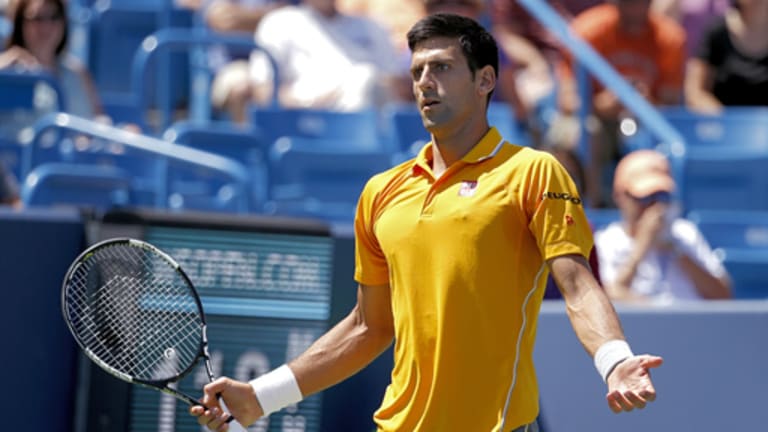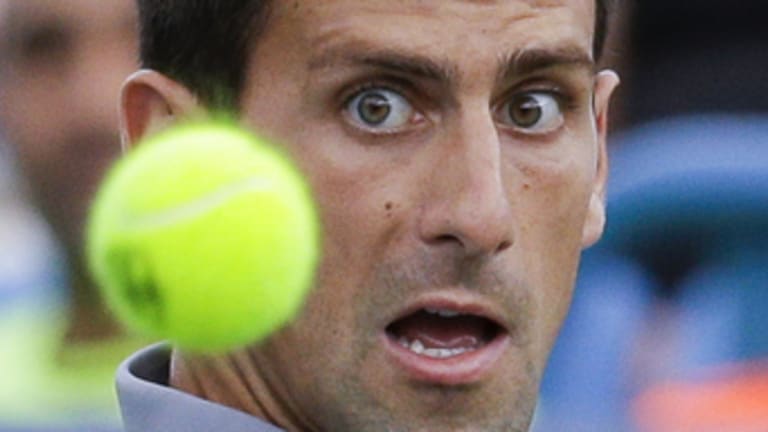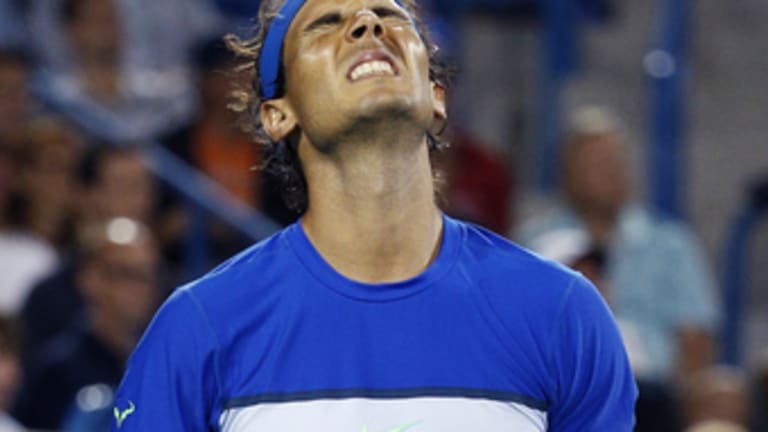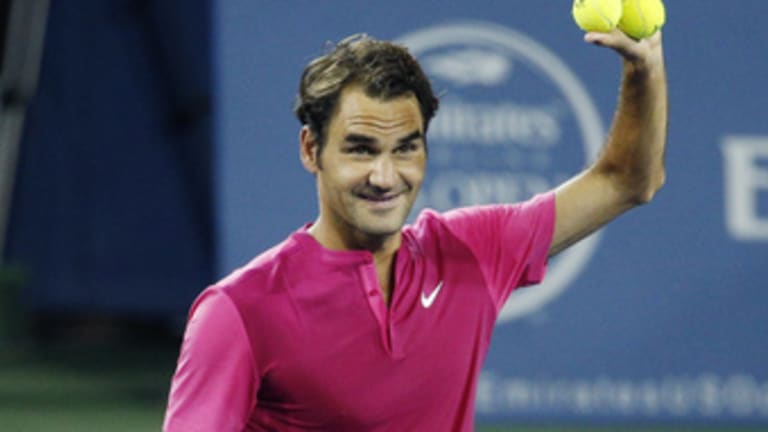It’s the tennis-world mystery of the week: Why can’t Novak Djokovic win the Western & Southern Open? He has titles at each of the other eight Masters 1000 events, and he has won the other three that are played on North American hard courts—Indian Wells, Miami, Canada—at least three times apiece. While Djokovic has hardly been a disaster in Cincinnati—he’s made the final four times in 10 appearances—the event remains a puzzling omission on his résumé, his Masters-level version of the French Open. On Thursday, though, Djokovic may have given us a clue to his Cincy puzzle, and it’s one that might also explain his recent struggles at the next tournament, in New York.
Despite weighing just a buck-fifty, 14th-ranked David Goffin bossed Djokovic around for the better part of an hour in their third-round match. It was the Belgian, rather than the Serb, who stepped forward with confidence and changed the direction of the ball. It was the Serb, not the Belgian, who was hesitant and frustrated. When Goffin detonated two down-the-line backhands to go up 3-0—and a double break—in the third, Djokovic directed a long tirade, complete with hand gestures, toward his player’s box.
Whatever he was trying to say, he got his own message, because he won the next six games.
“I managed to wake myself up,” Djokovic told ESPN afterward, “and hitting with a little more intensity and aggressiveness on the court and that helped.”
All of this may be no cause for alarm. A hiccup along the way to ultimate victory, as we know, has been the Djokovic M.O. all season. Last week he survived an even bigger early crisis in Montreal, when he was forced to save two match points against Ernests Gulbis. And last summer in Cincy, when Djokovic went flat as a pancake against Tommy Robredo, he stayed flat and lost in straight sets. This time, while it took a self-directed tongue-lashing to do it, he forced himself out of his funk.
Yet Djokovic went on to admit that it had been more than Goffin who was bothering him.



